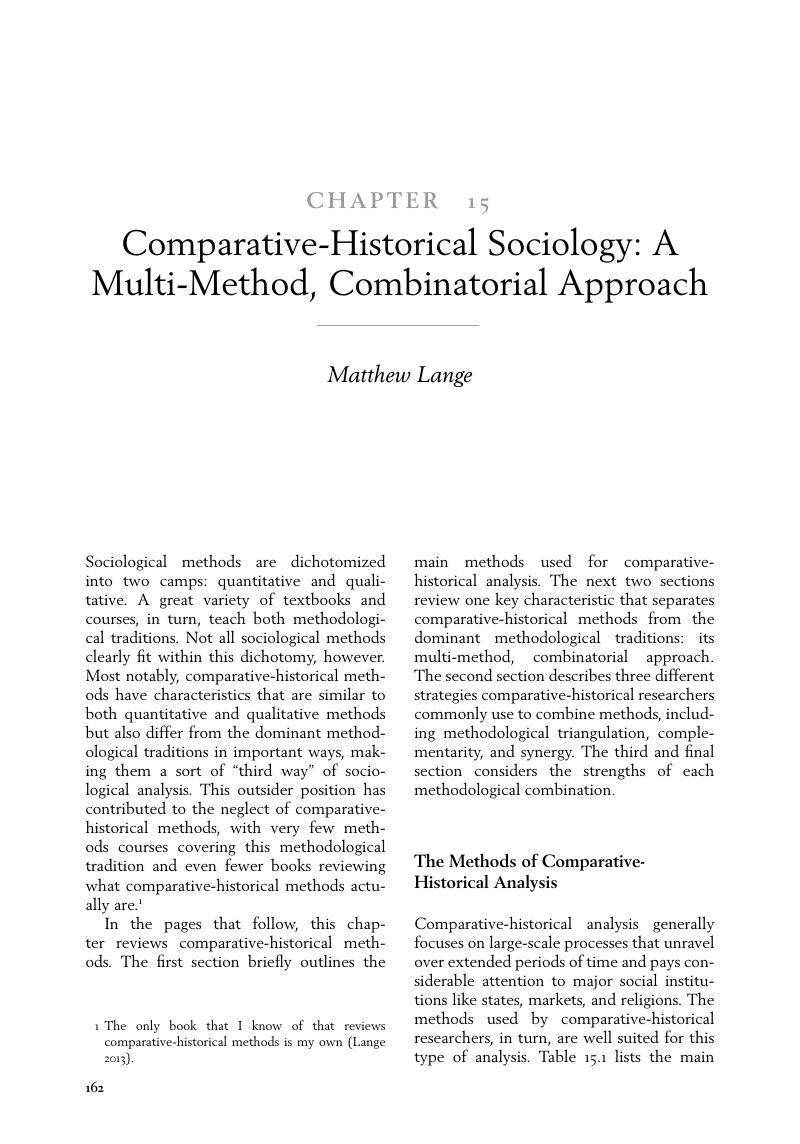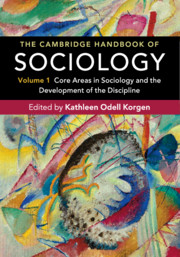Book contents
- The Cambridge Handbook of Sociology
- The Cambridge Handbook of Sociology
- Copyright page
- Contents
- Figures
- Tables
- Contributors
- Introduction
- Part I The Development of Sociology
- Part II Sociological Theory
- Part III Sociological Research Methods
- Chapter 11 Quantitative Methods
- Chapter 12 Social Network Analysis (SNA)
- Chapter 13 Qualitative Sociology
- Chapter 14 Mixed Methods Research
- Chapter 15 Comparative-Historical Sociology: A Multi-Method, Combinatorial Approach
- Chapter 16 Demography
- Part IV Culture and Socialization
- Part V Social Structure and the Organization of Society
- Part VI Social Inequality and Diversity
- Part VII Social Institutions
- Part VIII Social Problems and Deviant Behavior
- Part IX Locality, Geography, and the Environment
- Part X Social Change
- Index
- References
Chapter 15 - Comparative-Historical Sociology: A Multi-Method, Combinatorial Approach
from Part III - Sociological Research Methods
Published online by Cambridge University Press: 21 September 2017
- The Cambridge Handbook of Sociology
- The Cambridge Handbook of Sociology
- Copyright page
- Contents
- Figures
- Tables
- Contributors
- Introduction
- Part I The Development of Sociology
- Part II Sociological Theory
- Part III Sociological Research Methods
- Chapter 11 Quantitative Methods
- Chapter 12 Social Network Analysis (SNA)
- Chapter 13 Qualitative Sociology
- Chapter 14 Mixed Methods Research
- Chapter 15 Comparative-Historical Sociology: A Multi-Method, Combinatorial Approach
- Chapter 16 Demography
- Part IV Culture and Socialization
- Part V Social Structure and the Organization of Society
- Part VI Social Inequality and Diversity
- Part VII Social Institutions
- Part VIII Social Problems and Deviant Behavior
- Part IX Locality, Geography, and the Environment
- Part X Social Change
- Index
- References
Summary

- Type
- Chapter
- Information
- The Cambridge Handbook of SociologyCore Areas in Sociology and the Development of the Discipline, pp. 153 - 161Publisher: Cambridge University PressPrint publication year: 2017



